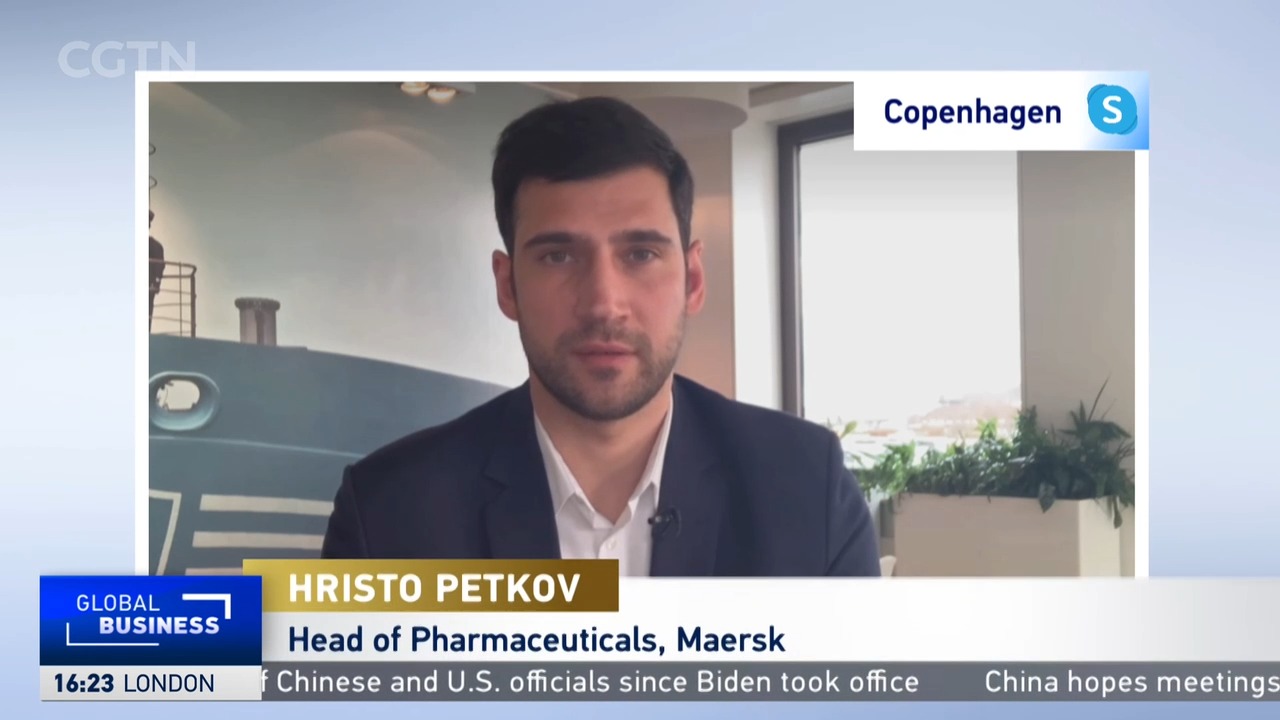02:59

Questions about vaccine safety may have dominated the headlines recently but one key concern for the mass roll out of COVID-19 jabs remains supply and distribution.
With supply expected to outstrip air transport capacity this year, there is concern this could slow down vaccine programs and alternative logistical solutions are being considered – including the use of ships.
CGTN Europe spoke to Hristo Petkov, head of pharmaceuticals at Danish shipping company Maersk, the world's largest container group, and he is confident ocean transport can play a key role in speeding up the vaccine roll-out.
READ MORE:
AstraZeneca jab 'safe,' clot fears remain
Hackers leak fake polish radioactive threat
Secrets of 'world's first computer' revealed
"It's something that we predict is going to happen over the next three to four years, given the fact that the vaccines get approved on time, production has steadied and the supply chain is ready to meet the challenge."
Maersk has already signed an exclusive distribution agreement with Covaxx, an American Biotechnology company that is developing the world's first multitope peptide-based COVID-19 vaccine and is aiming to produce a billion doses by the end of this year.

As the global pandemic has fueled online shopping, international shipping is needed to fulfill orders, meaning metal shipping containers have become scarce. /Justin Sullivan/Getty Images/AFP
As the global pandemic has fueled online shopping, international shipping is needed to fulfill orders, meaning metal shipping containers have become scarce. /Justin Sullivan/Getty Images/AFP
More than 80 percent of health and pharmaceutical products are already transported by ocean freight but one of the main difficulties with COVID-19 vaccines has been the need for extreme temperature regulation. Covaxx has no special cold-chain requirements and can be stored and distributed at between 2 and 8 degrees Celsius, something that makes it an ideal product to be transported by ocean containers.
"Looking specifically in this area, it is important to consider that a lot of the products that already move are with ocean freight and temperature controlled," Petkov explained.
"Ocean freight has the capabilities of moving 2 to 8 degrees [Celsius] temperature-controlled cargo. It has the reliability, it gives control and visibility to transport a pharmaceutical product – so rather than talking about, 'could the COVID-19 vaccine move in ocean containers,' it should be 'when will the COVID-19 vaccine move in ocean containers?'"
READ MORE: How businesses are adapting to COVID-19
However, there is another major challenge for shipping companies at the moment – a surge in demand for shipping containers that has led to a global shortage. Petkov also told CGTN Europe that Maersk doesn't expect this to hinder its move into the COVID-19 vaccine distribution market.
"What we have also done is, we have looked at some alternatives to meet these shortages in the ocean, we have deployed train solutions – for example from China to Europe – and we are looking into air freight solutions as well, so giving a well-rounded supply chain solution to the customers has been our driving goal."

